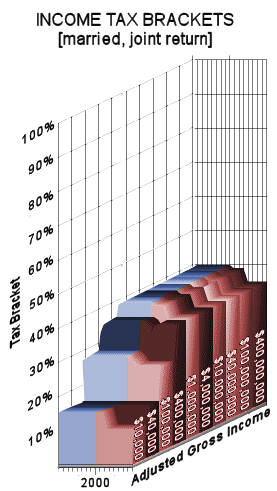Washington Post
By Lori Montgomery
September 20, 2010
The tax cuts at the heart of a fierce pre-election battle on Capitol Hill were designed when the economy was booming, the federal budget was in surplus and George W. Bush was campaigning for president on a promise to return the extra cash to taxpayers. Today, the economy is sluggish and the national debt is soaring to worrisome levels. As lawmakers bicker over whether to extend the Bush-era tax cuts, not just for the middle class but also for the wealthy, many economists and budget analysts say there’s a simple way to curb borrowing: Let the tax cuts expire for everyone.
Official and independent budget estimates show that letting tax rates spring back to pre-Bush levels for all taxpayers would bring the country within striking distance of meeting President Obama’s goal of balancing the budget, excluding interest payments on the debt, by 2015. "If we actually ended the Bush-era tax cuts, that would pretty much do it," Obama’s recently departed budget director, Peter Orszag, said in an interview last week with CNN’s Fareed Zakaria. "If you do a bit on the spending side and then end the tax cuts, you pretty much get there."
But for all the election-year hand-wringing about deficits, no one in Washington is talking about letting the tax cuts lapse on schedule in January. Instead, Senate Republicans have offered a measure that would extend all the cuts, adding nearly $4 trillion to the debt over the next decade. This week, Senate Democrats say they plan to unveil a bill that would preserve most of the cuts for most Americans. That would add nearly $2 trillion to deficits by 2020. Obama argues that letting the cuts expire for the wealthiest 3 million taxpayers – one of the chief differences between the two Senate proposals – is more fiscally responsible than the GOP’s position. "The first thing you do when you’re in a hole is not dig it deeper," he said at a town hall meeting Monday in Washington.
Sorry, the comment form is closed at this time.